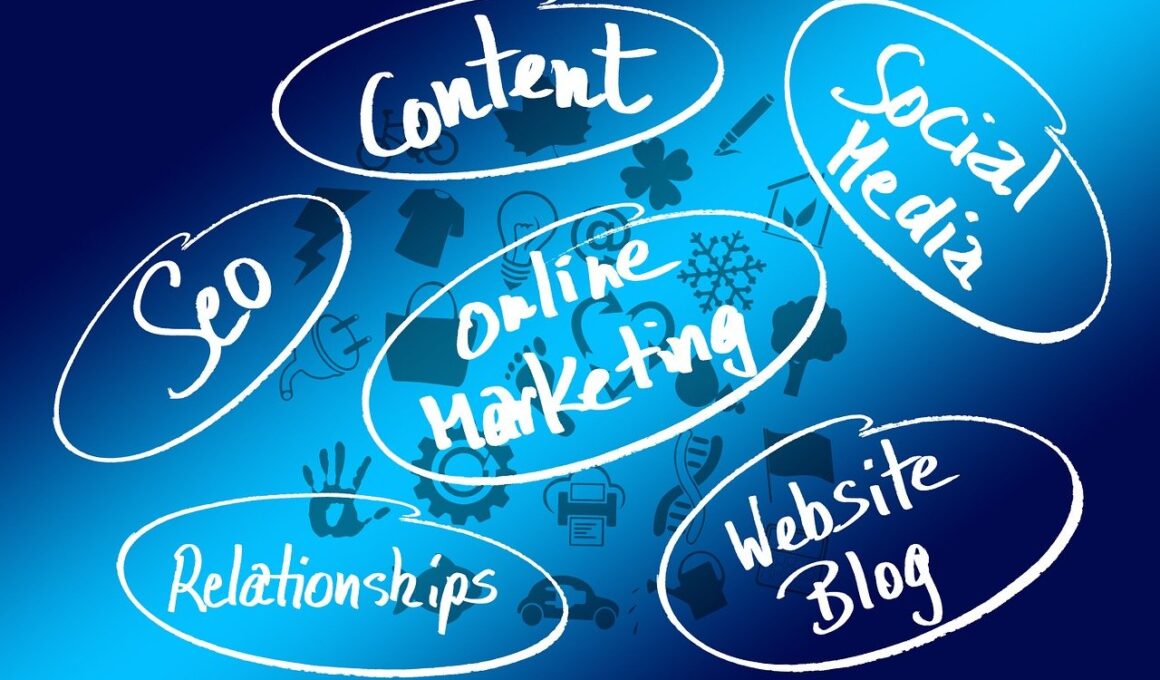Personalization Strategies to Boost ROI in B2B Marketing
In today’s competitive B2B landscape, leveraging personalization strategies can significantly enhance your marketing ROI. Companies that incorporate personalized experiences see improved customer engagement and retention rates. Personalized marketing is not a one-size-fits-all approach; rather, it requires understanding your audience’s unique needs and preferences. Through tools such as data analytics, you can gather insights into customer behaviors, allowing for tailored interactions that resonate with targeted segments. Utilize techniques like dynamic content on your website or personalized email campaigns to build stronger relationships with prospects and clients. For instance, addressing your contacts by name in emails creates a unique connection that can drive engagement. Segmentation of your audience is crucial; it allows you to send customized communications that address specific pain points and interests. Integrating advanced tools like predictive analytics helps anticipate future needs, ensuring your messaging remains relevant. These efforts not only foster a sense of connection but also translate into increased conversions, making personalization a vital strategy for boosting marketing ROI. Through understanding and meeting customer expectations, businesses can thrive, leading to more effective marketing outcomes and increased profitability.
Utilizing Data for Targeted Marketing
Data-driven approaches are fundamental in personalizing B2B marketing efforts. Collecting data on customer interactions, preferences, and behavior helps businesses tailor their marketing strategies. Analyzing trends and collecting feedback allows companies to refine their approaches, making communications more relevant. Tools like CRM systems enable businesses to track individual customer journeys, ensuring personalized experiences across various touchpoints. Implementing automated solutions can streamline processes while maintaining personalization at scale, significantly enhancing the efficiency of marketing efforts. For example, integrating chatbots to assist customers can provide instant, personalized responses based on individual inquiries. Additionally, leveraging analytics provides insights into successful campaigns, allowing for adjustments in real-time. As mentioned, segment your audience based on common characteristics or behaviors; this will enable you to send targeted communications that resonate deeply. Remember to continually test and optimize your messaging to ensure effectiveness. A/B testing subject lines and calls-to-action can reveal what resonates best with your audience segments. This not only improves engagement but ultimately drives higher conversion rates, solidifying the value of data in B2B marketing personalization and ROI enhancement.
Content marketing is another effective strategy for boosting ROI through personalization. By producing relevant, valuable content tailored to your audience, you foster trust and establish authority in your industry. Create buyer personas to fully understand your target audience’s demographics, challenges, and interests. This foundation enables you to develop resources such as whitepapers, case studies, or webinars that directly address their needs. For instance, an informative case study showcasing the success of another client can demonstrate the value of your offerings, thus prompting prospects to take action. Utilizing SEO techniques can also help make your content easily discoverable, attracting a larger audience base. As users engage with your content, utilize lead scoring metrics to identify warm leads based on interaction levels. This allows you to focus follow-up efforts on high-potential prospects, maximizing the efficiency of your resources. Additionally, repurposing existing content can help reach different audience segments while maintaining consistency in messaging. The combination of personalized content that resonates with your audience, along with strategic distribution channels, can dramatically improve your marketing ROI while establishing long-term relationships with clients.
Leveraging Social Media for Personalization
Social media platforms offer valuable avenues for personalized B2B marketing efforts. Utilizing these channels to engage with your audience on a personal level can help establish and maintain relationships. By tailoring your messaging to reflect the norms and interests of various platforms, businesses can create two-way communication. This involves actively participating in discussions, responding to comments, and sharing personalized content relevant to your followers. Additionally, targeting ads based on user interests and previous interactions further enhances personalization. Utilizing platforms’ targeting features can deliver promotions or content to specific consumer segments, ensuring a higher probability of engagement. Creating a structured social media content calendar allows for consistency and ensures that you effectively reflect your brand voice. Experimenting with live videos or interactive posts can also promote engagement and allow personalized interaction with audiences. Monitoring analytics from your social media efforts helps evaluate which strategies yield the best results; this empowers businesses to make informed decisions. Ultimately, harnessing the potential of social platforms for personalized marketing fosters community building and trust between your brand and its audience, which is essential for a sustainable ROI.
Email marketing is another effective method for personalizing B2B outreach and enhancing ROI. By maintaining a segmented email list, businesses can tailor their messaging to address specific audience segments efficiently. Personalized email campaigns can leverage names, businesses, and recent interactions to create tailored experiences for recipients. Automated email drip campaigns can nurture leads through customized content based on their funnel stage, ensuring timely communication. Engaging subject lines, segmented send times, and dynamic content can further improve open and click-through rates. Understanding the best timings for your audience—whether they prefer morning or afternoon emails—ensures your content reaches them when they are most receptive. Implementing feedback loops can capture customer responses, allowing ongoing optimization for future campaigns. Utilizing targeted offers based on previous purchases or expressed interests can significantly boost sales conversions. Regularly analyzing campaign results helps refine strategies, ensuring greater relevance over time. Moreover, integrating customer relationship management (CRM) tools allows for deeper insights into user interactions, enhancing personalization efforts. By optimizing your email marketing approach to focus on personalized content, businesses are likely to experience substantial improvements in ROI.
Creating a Personalized Customer Experience
Building a personalized customer experience is essential for increasing B2B marketing ROI. When businesses prioritize customer relationships, they create loyalty, which leads to repeat sales and referrals. To achieve this, understanding the buyer journey becomes key. Businesses must map out each stage of the customer experience, from awareness to post-purchase, identifying opportunities for personalization at every touchpoint. Utilizing marketing automation tools can facilitate personalized interactions with customers based on their specific needs and behaviors. Moreover, offering tailored product recommendations following purchases can enhance the likelihood of repeat business. Satisfaction surveys and follow-up emails can gather feedback about their experiences, helping to address pain points adequately. Ensuring that your customer service teams are equipped with insights about individual client preferences can further improve service interactions. Training sales staff to engage in meaningful conversations with prospects enables the creation of a strong rapport. Ultimately, the goal is to develop a seamless, integrated customer experience that nurtures relationships over time. Investing in creating personal connections with clients can yield of return on your marketing investments, resulting in elevated marketing ROI and overall growth.
Tracking and analyzing performance metrics is the final piece of the puzzle in refining personalization strategies. Establishing clear KPIs relative to personalized campaigns helps assess their effectiveness in driving ROI. Metrics such as engagement rates, conversion rates, and customer retention provide substantial insights into the success of your marketing efforts. Implementing tools like Google Analytics or marketing automation software can streamline tracking processes, allowing for more in-depth analysis of how personalized marketing contributes to overall goals. Regular assessments help identify areas for improvement, ensuring that your strategies evolve based on real-time data. Additionally, incorporating A/B testing within your campaigns can unveil which personalization tactics resonate best with your audience. This continuous feedback loop yields valuable insights, enabling data-driven decision-making for marketing strategies. Insisting on testing different approaches, such as messaging styles, content types, and timings, will refine campaigns and ultimately drive better results. It’s essential to establish cohesive reporting procedures so teams can quickly access data and share insights. Focusing on performance metrics ensures that B2B marketers can systematically elevate their ROI while maximizing the impact of personalization strategies.
Fostering collaboration within teams can enhance personalization strategies significantly. Your marketing, sales, and customer service teams must work cohesively to align their strategies and share insights for effective personalization. Regular meetings where departments can discuss trends, share customer feedback, and identify gaps in personalization can yield powerful strategies. Collaborative platforms allow for shared information about customer interactions, needs, and pain points. This unified approach ensures that everyone involved in the customer journey is on the same page. Cross-departmental training can equip teams with the skills and knowledge needed to engage customers more personally. When every team member understands the importance of personalization, especially in B2B contexts, it creates a consistent experience for customers. Notably, sharing success stories of personalized strategies can motivate teams and encourage further experimentation. Finally, regular evaluation of collaborative efforts leads to continuous improvement; addressing setbacks ensures that your strategies adapt over time. By weaving collaboration into the fabric of your personalization approaches, businesses can optimize their strategies, ultimately yielding higher returns on their marketing investments.


